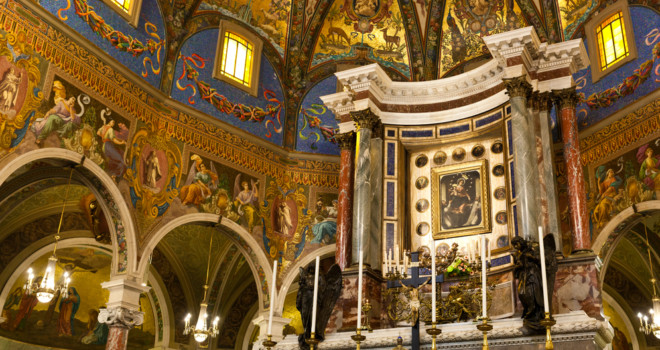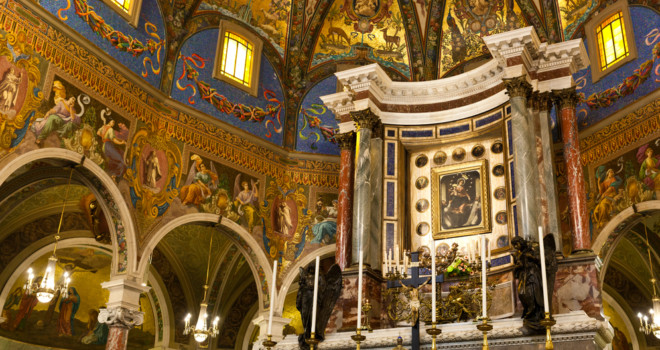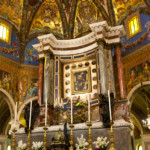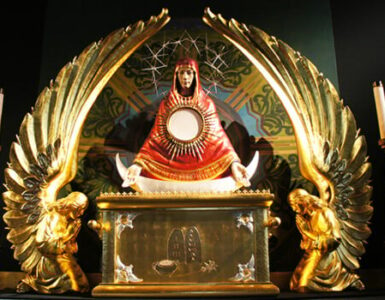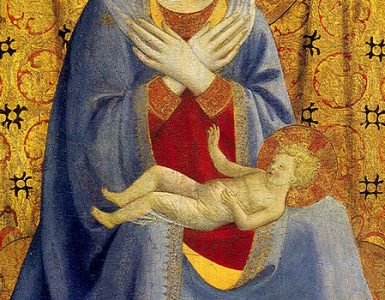Things were in God’s plan which I had not planned at all. I am coming to the living faith and conviction that — from God’s point of view — there is no chance and that the whole of my life, down to every detail, has been mapped out in God’s divine providence and makes complete and perfect sense in God’s all-seeing eyes.
— Saint Teresa Benedicta of the Cross (Edith Stein)
One Hundred Eighty Degrees in the Wrong Direction: Bl. Bartolo Longo
While studying law at Naples, Bartolo Longo lost his faith in the one, holy, catholic, and apostolic Church. The eloquent professors under whom Bartolo studied were imbued with a hatred for the Church and especially the authority of the pope. These articulate men were persuasive, passionate, and highly motivated in leading students away from all things Catholic. Later in life, Bartolo wrote about it:
Overwhelmed as I was in the ebullience of my youth, in the errors against the faith and against the True Church as sown in the celebrated University of Naples . . . ensnared on the enticing hook of freedom of conscience and thought . . . feeling secure in the reverberations of certain professors’ names echoing as far as the universities of Paris and of Berlin . . . all in agreement in denying the person of God, the Catholic Church, the religious orders, the Pope, the sacraments and the rest of truth which is part of faith, I too grew to hate monks, priests, and the pope.
Ann M. Brown, Apostle of the Rosary: Blessed Bartolo Longo (New Hope, KY: New Hope Publications, 2004).
During Bartolo’s university years in the early 1860s, Europe was experiencing the unholy advance of spiritualism and occultism. It was not enough for the young law student simply to reject the Church. Bartolo hungered for truth. Since he was convinced that truth could not be found in the Catholic Church, he looked for it in the opposite direction.

Unlike so many who are attracted to the occult because of the phenomena associated with it, Bartolo was searching for knowledge that continued beyond this life. He wanted to know spiritualism’s doctrine of salvation. When looking back on his initial séance, Bartolo wrote, “I believed I had finally found the path that would lead me to the truth.”
Pact with the Devil
Being an enthusiastic, all-or-nothing kind of person, Bartolo threw himself into spiritualism. He was not satisfied to seek the spirits through mediums: he wanted direct access. He therefore consecrated himself to Satan and became a “minister of the spirit.”
Immediately following his pact with the devil, Bartolo’s life
disintegrated in multiple ways. He was sad but not in a usual way one might be
sad about something. It was an ever-present oppressive sadness.
And he was confused. His spirit companion whom he called his
“angel” gave inconsistent answers to the questions that were so important to
him. These, too, contradicted the replies received from other “ministers of
the spirit.” Their “angels” did not agree with his or each other.
Bartolo’s
physical health was suffering: his appearance was wild and haunting,
unrecognizable by those who had known him before. His mental state was taxed
almost beyond his strength, with his grip on sanity slipping.
Delivered from Darkness
Bartolo’s failing health and apparent anxiety did not escape the notice of one of his professors, Vincenzo Pepe, one of the few remaining loyal Catholics at the University of Naples. Professor Pepe warned Bartolo that his association with spiritualism and the occult would land him in the “madhouse.”
The wise Catholic faculty member then
implemented a most strategic move: he solicited prayers from many other
Catholics for Bartolo. Without Bartolo’s knowledge or consent, a spiritual war
was being waged on his behalf. The prize was nothing less than the most
valuable thing that any human being possesses — his eternal soul.
The decisive moment came when Bartolo mentioned to Professor Pepe that he had contacted the spirit of his deceased father. As a result, Bartolo had decided to have a Mass offered for his father’s soul.
On hearing this, Professor Pepe, inspired with zeal for
God and a deep concern for the soul of his young friend, made a bold move. He
demanded, “Not only will you have a Mass said, but you will also make your
confession to one of those learned and holy monks. Tomorrow — understand?”>
Remarkably, Bartolo agreed.
After a month of daily meetings with the Dominican priest Father Radente, Bartolo was reconciled to the Church. A time of purification and spiritual growth followed. Bartolo regularly practiced the Corporal Works of Mercy, developed a consistent prayer life that included a Rosary group, and studied theology.
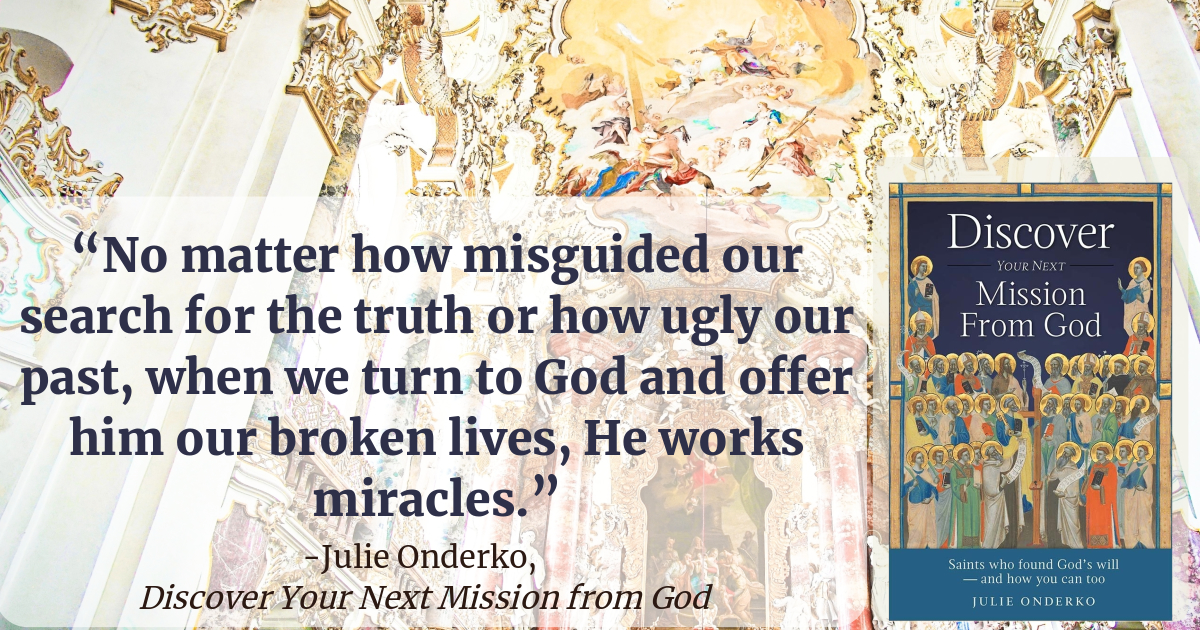
A Great Mission, Then Another and Another . . .
During a trip to Pompeii, Bartolo was taken aback when he learned how ignorant the peasants were about the Catholic Faith. Although he had come to the Valley of Pompeii to take care of a business transaction for a friend, Bartolo was deeply concerned about the skewed ideas and mixture of Christian doctrine with superstition.
What he found even more troubling was the infusion of occult practices in the lives of the people. The local Catholics were as confused as he had once been; they readily sought the services of witches and mediums. He decided to go for a walk to consider the situation.
While on that walk, the demonic influences of his past assailed him with a vengeance. He was overcome with anguish and suicidal thoughts. He began to tell himself that because of his past, particularly his consecration to Satan, he was worthless and good for nothing. His soul was in torment — the struggle intense. It was then that the advice of Father Radente came to mind:
If you are looking for salvation, propagate the Rosary. It is Mary’s promise: whoever propagates the Rosary will be saved.
Bartolo describes what happened next:
I then prostrated myself and my eyes filled with tears. With the boldness of desperation I lifted my face and hands to the Heavenly Virgin and cried, “If it be true that you promised St. Dominic that whoever spreads the Rosary will be saved, I will be saved, because I shall not depart from this land of Pompeii without having spread your Rosary.”
Blessed Bartolo Longo was true to his word. In his propagation of the Rosary and his great love for the Virgin Mary, he accomplished several missions in the “land of Pompeii.” The most notable and well known is the construction of the Pontifical Shrine of the Blessed Virgin of the Rosary of Pompeii.
When there is a resurgence of faith, there is a building up of
society. Bartolo’s ministry to catechize the people and spread devotion to the
Rosary resulted in the establishment of schools for poor children, orphanages,
and trade schools.
In order to keep pilgrims and devotees informed of the many miracles and stories associated with the shrine (in 1885 alone, there were 940 cures recorded), Bartolo started a magazine, The Rosary and the New Pompeii. This publication became the largest journal in the country.
No matter how misguided our search for the truth or how ugly our past, when we turn to God and offer him our broken lives, He works miracles. We can get it wrong, seriously wrong, but if we turn to the Lord (often repeatedly), He will show us what His will is for our lives. And He will give us the grace to carry out any mission that He asks of us. Blessed Bartolo Longo is proof par excellence!
✠
This article is adapted from a chapter in Discover Your Next Mission from God: Saints who found God’s will — and how you can too. It is available from EWTN.
image: Shrine of the Virgin of the Rosary of Pompeii, a minor basilica commissioned by Bartolo Longo / via Antonio Gravante / Shutterstock.com


